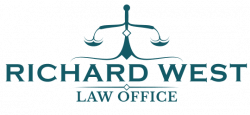Job Loss and Bankruptcy
What Do You Do When Facing Job Loss and Bankruptcy?
Most of us live paycheck to paycheck, or close to it. Job loss and bankruptcy often go together. It just makes sense. Not many can afford the luxury of a 6 month emergency fund. When your income is suddenly taken away from you, you have an immediate emergency. Before too long, you can’t stay current on monthly payments. Bill collectors don’t care why you can’t pay. I had fellow attorneys sue me when I got behind. It was a nightmare. It doesn’t take long before bankruptcy becomes a serious option.
More people file bankruptcy due to job loss than for any other reason. I’ve seen clients suffer all sorts of hardships. Garnishments eat into their paychecks. They adjust. Payments on consumer debt leave nothing for medications. They do without. But job loss makes even these difficult alternatives impossible. So, they look to bankruptcy to discharge the debt. Job loss and bankruptcy thereafter are more common than you may think. It’s absolutely the right thing to do.

Job Loss and Bankruptcy, Should I File Now, or Later?
Timing is important when facing Job loss and bankruptcy. The amount and type of debt you have makes a difference. Even the difference between renting or buying your home can have a dramatic impact on your choice.
The first question I always ask my clients is how long they expect they will be unemployed. In recent years, the answer is that job search takes two to ten times longer than it used to. Add Corona virus to the picture, and the answer becomes even more difficult. Still, you have to make the best estimate you can.
Create your disaster plan. What is your worst-case job replacement scenario? What can you afford not to pay, and suffer the least serious consequences. This is not the time to worry about your credit score. Food, shelter and transportation are the most important things to pay. All else has low priority.
For extended planning, if you own your home, you can request a forbearance. See if your car loan can be extended. Don’t worry about credit cards and personal loans for now.
Hold out as long as you can. See a bankruptcy specialist to make a plan. But, you might want to old off as long as you can, ideally until you income is replaced, before you file. That way you can wipe out all the debt you have in your bankruptcy.
Looking for More Articles on Bankruptcy?
Looking for more insight and articles on Bankruptcy? Head over to the Bankruptcy Learning Center for more information.
Visit the Bankruptcy Learning CenterCan I File Chapter 7 if I Am Unemployed?
Yes. There is no income requirement to file chapter 7. In fact, Job loss and bankruptcy, especially chapter 7, is a recipe for recovery. However, if you have a car payment, this might become an issue. In order to keep your car, you normally will sign a reaffirmation agreement. One of the requirements is that your car payment will not constitute a hardship on you. The court has to rule on this. If you have no income, would this not be a hardship?
In several cases I have filed, we did reaffirm debts for clients who were not employed at the time. We explained to the court that a family member, fiancée, or parent, would help pay the debt until the client got employed, and that we did expect to be employed soon. So, even if you are unemployed, there may still be a way to reaffirm debts you need to keep.
Can I File Chapter 13 if I Am Unemployed?
Yes, you can!. One of the requirements of chapter 13 is that you have regular income to fund a plan. If you are receiving unemployment, this can be counted as regular income. Also, family assistance can be counted too. I have filed a number of chapter 13 cases where we expected to get a job soon, and we got the trustee to agree to a plan funded, temporarily, by unemployment and funds from family. Job loss and bankruptcy in chapter 13 can be a real life-saver.
Job loss soon turns into an emergency. The sooner you have a plan, the more confident you’ll be of getting through, and recovering. I’ve helped thousands of people through job loss, unemployment, and successfully recovered through bankruptcy. The sooner you have a plan, the better off you’ll be. Job loss and bankruptcy to pick you up after job loss is what you need, sometimes.
Share This Article
Our Legal Services
Bankruptcy Learning Center
- Bankruptcy Can End a License Suspension
- Bankruptcy Individual vs Joint
- Can the Self Employed File Bankruptcy?
- Chapter 7 vs Chapter 13
- Cash Advance and Bankruptcy
- Debt Consolidation vs Bankruptcy
- Divorce and Bankruptcy
- Divorce and Chapter 7
- Divorce and Chapter 13
- Divorce Chapter 7 vs Chapter 13
- How to Keep Your Car
- How to Keep Your Pets in Bankruptcy
- How to Keep Your Property
- How You Can Loose Your Retirement
- Is Chapter 7 or Chapter 13 Better?
- Judgment Proof vs Bankruptcy
- Liens in Bankruptcy
- Military Bankruptcy
- Payday Loans and Bankruptcy
- Life After Bankruptcy
- Chapter 13 vs Loan Modification
- Short Sale vs Bankruptcy
- Small Business Bankruptcy
- Stop Lawsuits with Bankruptcy
- What is an Automatic Stay?
- What is a Bankruptcy Exemption?
- What To Do if You Lost Your Job
- What Does the Bankruptcy Trustee Do?
- Tax Debt and Bankruptcy
- The Downside of Filing Bankruptcy
- The Pros & Cons of Filing Bankruptcy
- The Truth About Bankruptcy
Useful Calculators
Here are two helpful calculators for managing your debt repayments and Chapter 13 commitments.

